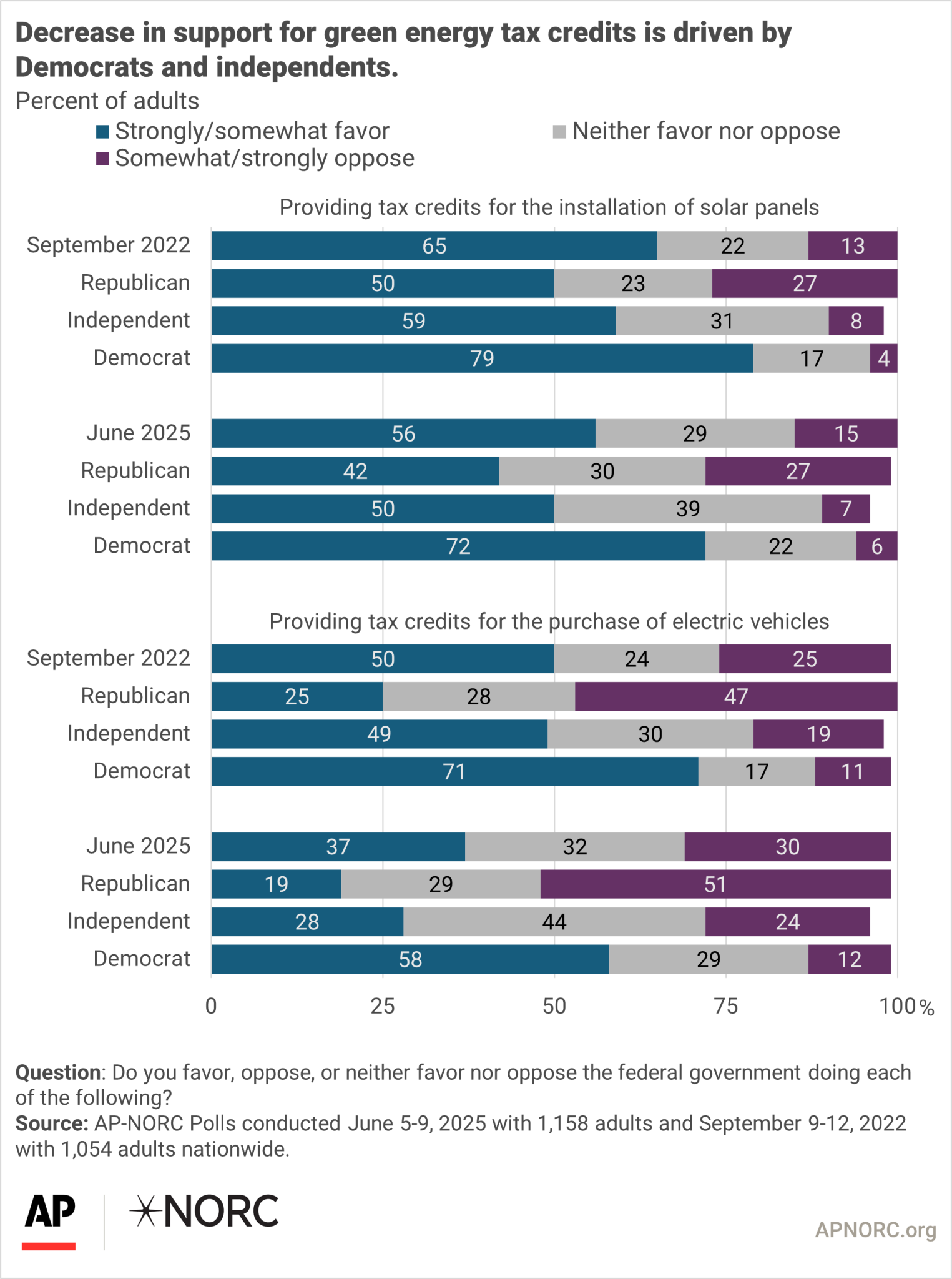New Poll Finds Fading U.S. Public Support for EV, Solar & Wind Incentives
Public support for green energy incentives is softening, according to a new AP-NORC Center for Public Affairs Research poll — and the biggest shift is coming from groups historically most supportive of clean energy policy. Democrats and independents are showing declining enthusiasm for tax credits tied to electric vehicles, solar panels, and large-scale renewable energy projects, raising fresh questions about the political momentum behind U.S. climate efforts.
Compared to a similar poll in 2022, fewer Americans now favor financial incentives for clean energy technologies:
Only 37% support tax credits for electric vehicles, down from 50% in 2022.
Support for solar panel tax credits has declined from 65% to 56%.
Interest in expanding offshore wind farms has dropped from 59% to 44%.
Support for solar farms declined from 66% to 52%.
While support remains stronger among Democrats, the declines are most visible within the left-leaning and independent segments. In 2022, 71% of Democrats backed EV tax credits — that’s now down to 58%. Independents dropped from 49% to 28%. Republican support levels have remained fairly steady, but generally more skeptical.
Government Incentives Face Growing Scrutiny
Despite the drop in enthusiasm for some clean energy tax credits, several government-backed environmental policies still enjoy relatively strong public support. A solid 65% of Americans favor offering consumer rebates for efficient home appliances, and 68% support providing information to help consumers choose more energy-efficient products. Efforts to limit corporate emissions also retain majority backing, with 59% in favor—though that figure has declined from 64% in 2022.
By contrast, targeted climate justice initiatives appear less popular. Only 41% of respondents support federal funding to address inequality in who is most affected by climate change. And while the appetite for renewable energy incentives is softening, backing for fossil fuel expansion remains limited. Just 33% of Americans support auctioning more public land for oil drilling, and only 23% want to see coal mining expanded—matched by the 38% who say it should be reduced.
Public Support May Hinge on Economic Impact
The latest polling shows that while many Americans still support efforts to cut emissions and promote clean energy, enthusiasm is cooling—especially for incentives perceived as expensive or exclusive. Support remains stronger for practical, household-focused measures like appliance rebates and efficiency information, suggesting that economic clarity matters.
As cost-of-living concerns persist, the challenge for policymakers may be to align climate goals with tangible financial benefits. Can clean energy policies be reframed not just as environmental imperatives, but as economic opportunities that resonate more broadly with the public?


